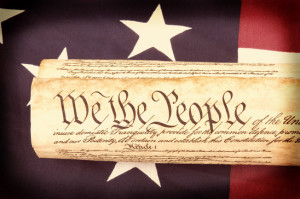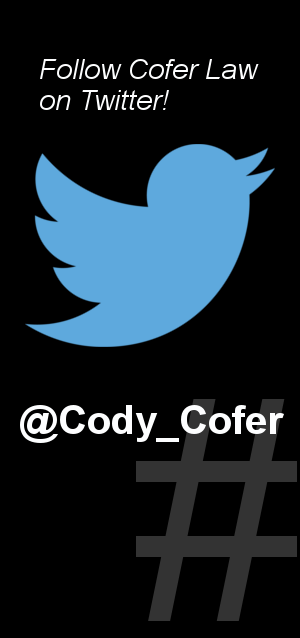Part 8: Filing and Arguing Pre-Trial Motions
Fort Worth Criminal Defense Attorney Guide
Filing and arguing motions is a big part of the pre-trial process. Written motions filed with the court are your way of not only formally notifying the State and the court of what you would like to see happen in the case, but also your criminal attorney’s way of protecting your rights at pre-trial, trial, and on appeal. Your defense attorney will file at least some motions during the course of your criminal case (unless the case concludes before there is time to file any motions, or if there is a tactical reason to delay filing motions), so we will discuss the major types of motions to be filed and the importance of preserving your rights by having your attorney argue them in court.
Whatever a man sows, this he will also reap.
-Galatians 6:7

Which Motions Should Be Filed In My Case?
The types of motions that can be filed in any given case are as vast as the Criminal Defense Attorneys filing them. Most attorneys start out with a standard set of motions that they file in every case. They will generally deal with discovery, suppressing evidence, alleging violations of the client’s constitutional rights, and/or requesting a dismissal for various legal deficiencies. Since there are far too many types of cases and types of motions to address each individually, this is where you will have to rely on the knowledge and experience of your defense attorney to guide you through this process. The State Bar of Texas puts it this way: “Counsel should consider filing an appropriate pretrial motion whenever a good-faith reason exists to believe that the client is entitled to relief that the court has discretion to grant.” Procedurally, if counsel fails to file necessary motions in a timely manner, you may forfeit relief you otherwise could have benefitted from.
As we discussed in What a Defense Lawyer Does – Part 5, initially your attorney may need to file motions requesting an examining trial, making changes to your pre-trial custody and bond conditions, or asking for a competency hearing. We also discussed in What does Defense Attorney Do – Part 7 that the Legislature recently changed the Discovery laws to require the State to disclose evidence, witnesses and materials.
However, the law clearly states that they don’t have to do it until they’ve received “a timely request from the defendant”. Once your attorney has completed his/her investigation and received discovery documents from the State, s/he will be better equipped to determine which, if any, constitutional violations have been committed and whether this means the court can grant relief by (a) suppressing illegally obtained evidence or (b) ruling the State has insufficient evidence to support the charges, thus leading to a dismissal.
Constitutional violations generally fall under the Fourth, Fifth, Sixth and Fourteenth Amendments (and the corresponding State provisions and statutes), and manifest as illegal searches and seizures, involuntary statements or confessions, and unreliable identification evidence. Rarely are cases this clear cut, but it is always important that your defense attorney examine the evidence for such a situation.
How Do I Preserve My Rights?

Just as we said that failing to file a motion could cause you to forfeit potential legal options, failing to secure a ruling will also hinder your chances of relief from the court (either at the time of trial or on appeal of your criminal case). The relief requested in any motion filed with the court cannot be granted until the court has had a hearing on the motion in the presence of the State’s prosecutor and the judge has ruled that you are entitled to the relief. During this hearing, the court will review the arguments laid out in the motion by your Criminal Defense Lawyer, and may also ask for testimony from witnesses, wish to examine evidence, photos or videos, or hear arguments from your attorney and the prosecutor.
Everything will be taken down by the court reporter in the official court record, including the judge’s ruling. This record created during the hearing, in combination with any subsequent hearings or a trial, is the one thing that will give you any shot at an appeal, should that become necessary. This is because the appellate court cannot read you or your attorney’s minds or intentions, and the official court record, along with any testimony and evidence admitted at trial, will make up the sum of evidence reviewed on appeal.
Ensuring you have the best pretrial motions and objections at trial is essential to a complete and competent criminal defense. This is one reason retaining a Board Certified Criminal Attorney is wise. Many issues that arise before and during trial are only recognized when an attorney has a lot of courtroom experience. Finding a lawyer that handles criminal appeals, in addition to trial, is another strategy to get the best representation. By writing appeals, attorneys have the opportunity to read and reflect on what happens in trials. Appellate attorneys also spend immense amounts of time reading court rulings and legal history. This sharpens their minds to pick up on possible issues in your case.
After your lawyer files initial pretrial motions, sometimes additional information might come to light. Thus requiring your attorney to file additional motions. Similarly, additional information might lead your attorney to urge the court to reconsider a previously decided motion and ask for a different outcome. Either way, your attorney will have to prepare for all pre-trial motions hearings by collecting evidence, researching statues and case law, subpoenaing possible witnesses and experts, having a firm understanding of the applicable burden of proof, evidentiary principles and in-court procedures, and developing a clear presentation in which to convince the court of the merits of the relief requested in the motion.
Cofer Law Wins Motions That Win Cases
Success depends upon previous preparation, and without such preparation there is sure to be failure.
-Confucius

We recognize that cases can be won and lost on the merits of pre-trial motions. When trial time comes, we strap on a tie and present an energetic and articulate presentation for juries. That’s not all we do. We are law nerds. This means the leisure reading for Cody Cofer includes biographies of great lawyers or defense attorney magazines, like the Champion.
While most other attorneys with less experience will merely focus their strategy on winning at trial, we know through our long track record of successful cases that focusing on the issues as they present themselves will prevent opportunities from slipping through the cracks. We are your Fort Worth Criminal Attorneys who are prepared to fight for you from the very beginning, rather than waiting until the jurors are sitting in the box.
This strategy means that from the moment of pre-trial investigation and discovery, we are looking for every angle. We are looking for ways to assert your Constitutional rights, argue for those rights in court, and secure favorable rulings from the court. This can win a case at trial, lead to a dismissal, or give us the upper hand during plea bargain negotiations. If you’ve hired another attorney who is taking the wait-and-see approach during pre-trial proceedings, call us. We want to talk about what can be done, now.



